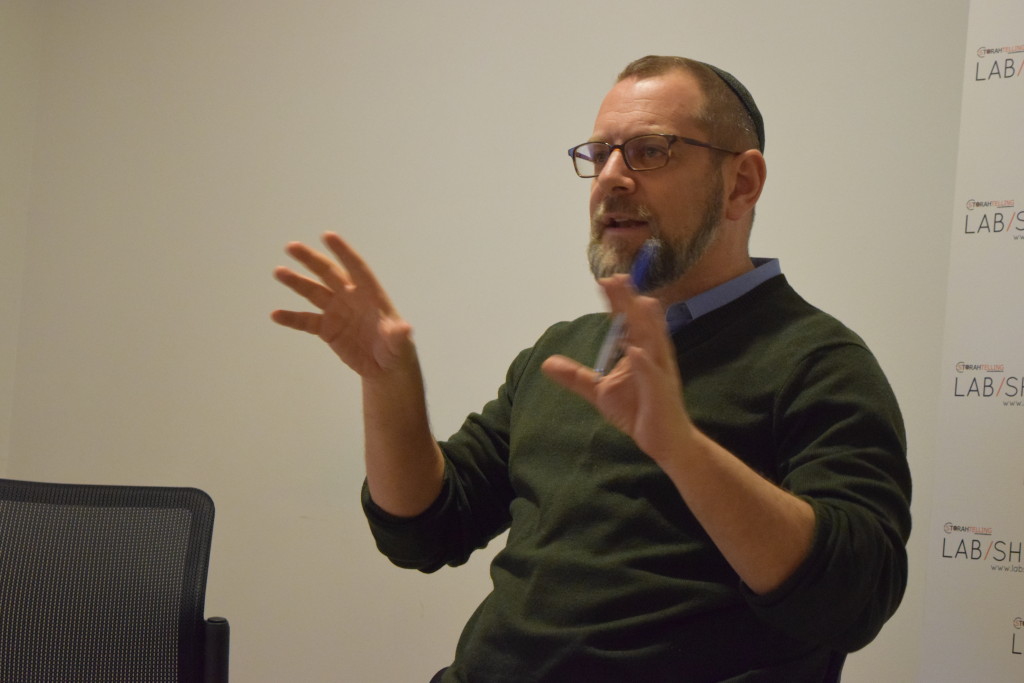Thanks Amichai and team for putting this together. It’s always nice to have a meeting whose objective is how to get us to do less not more.
Jotting down some thought on the conversation.
First, we need to get past the humiliation of starting this conversation at all. So you’re suggesting I’m on Facebook too much? Don’t you think I’m an adult and can manage my life for myself? I think this is the first hurdle we need to get past if we are to make any progress, and goes to the source of the problems we have. This touches Amichai’s question, a question I have been thinking a lot about too. How do we get ourselves to realize that our actions have consequences when there is no daddy or hell to scare us? To me this is a familiar part of the modern predicament and the reason we’re so easily manipulated by anyone who wants to make money off us by playing to our autonomy while taking it away.
The mere suggestion that we need direction in life, that we can’t really just figure this out on our own, that we aren’t all rational adults acting in our own self-interest, is an affront to the modern man. The assumption all our social institutions are built on is that we are perfectly capable of caring for ourselves, economically, socially, spiritually. If you are seeking guidance you must have a pathology, something listed in the DSM, so you get a permission slip to see a doctor to bring you back to ‘normal’. What’s missing in this equation is that normal doesn’t exist, that man is in a state of becoming not of being, and that his entire journey is predicated on the idea of him missing something and striving to achieve himself.
To me, finding better ways to live, and using ancient and modern texts and teachers to guide us to do better for ourselves, isn’t a question of what the consequences are, it is a question of finding answers to our questions and guidance where we are lost. How to live life isn’t something we innately know or are capable of doing ourselves. And so we turn to teachers, to texts ancient and modern, and to friends to help us find a way. Torah, says the Baal Shem Tov, means guidance. (Alain de Botton has articulated this problem beautifully in his Religion for Atheists).
—
When do you take conscious daily, weekly time for no-doing and just being? What time would work best for you? And for how long?
As we saw in conversation, being might signify different verbs for different people, for one playing music is being, for another drawing, writing, walking, running, basically any action can be done as being-not-doing. I think the idea that draws these together and might clarify what we mean by setting aside a time for being is intention.
Intent isn’t a verb, yet can be consciously done. In the language of Chazal prayer, and Mitzvot, need Kavannah, which translates as intent. What defines all means of being is that they are begun with the intent to break from the do-do-do of daily life and just be. What your body or mind does with that intent doesn’t matter, you could write sing pray walk or just meditate quietly. But it is this intention that transforms your state of mind into being not doing. Getting into this intention might not be so easy, it requires a real change in your state of mind. But it is all that is needed for a Shmittah to happen.
—
The Torah warns that if Shmittah is not observed the land will take it for itself, by exiling the inhabitants from it, and thus it will lie deserted.
Taking this to the emotional realm. This is a law of nature I have observed. IF you don’t learn to give your body and soul its times of rest and contemplation in a deliberate and structured way, it will take it itself. There is no time to be gained by skipping that daily or weekly hour of being. It will only lead to your body/soul to force that break on you, in a more destructive way. Here’s me putting this more positively (Hebrew) be it by addiction, by unhealthy cycles of binging and fasting, or (more likely in my case) just by total breakdown. The cyclicality of Shmittah is about taking control of these non-doing forces within us, of giving structure to the breaking of structure. Forces that, left without direction, are strong enough to break all doing forces in existence. The boom-bust cycle might be good for capitalism, it isn’t good for anyone else. Creating your own planned bust harnesses the great creativity of non-doing, which than translates into a great deal of doing.
—
That’s it for now.
